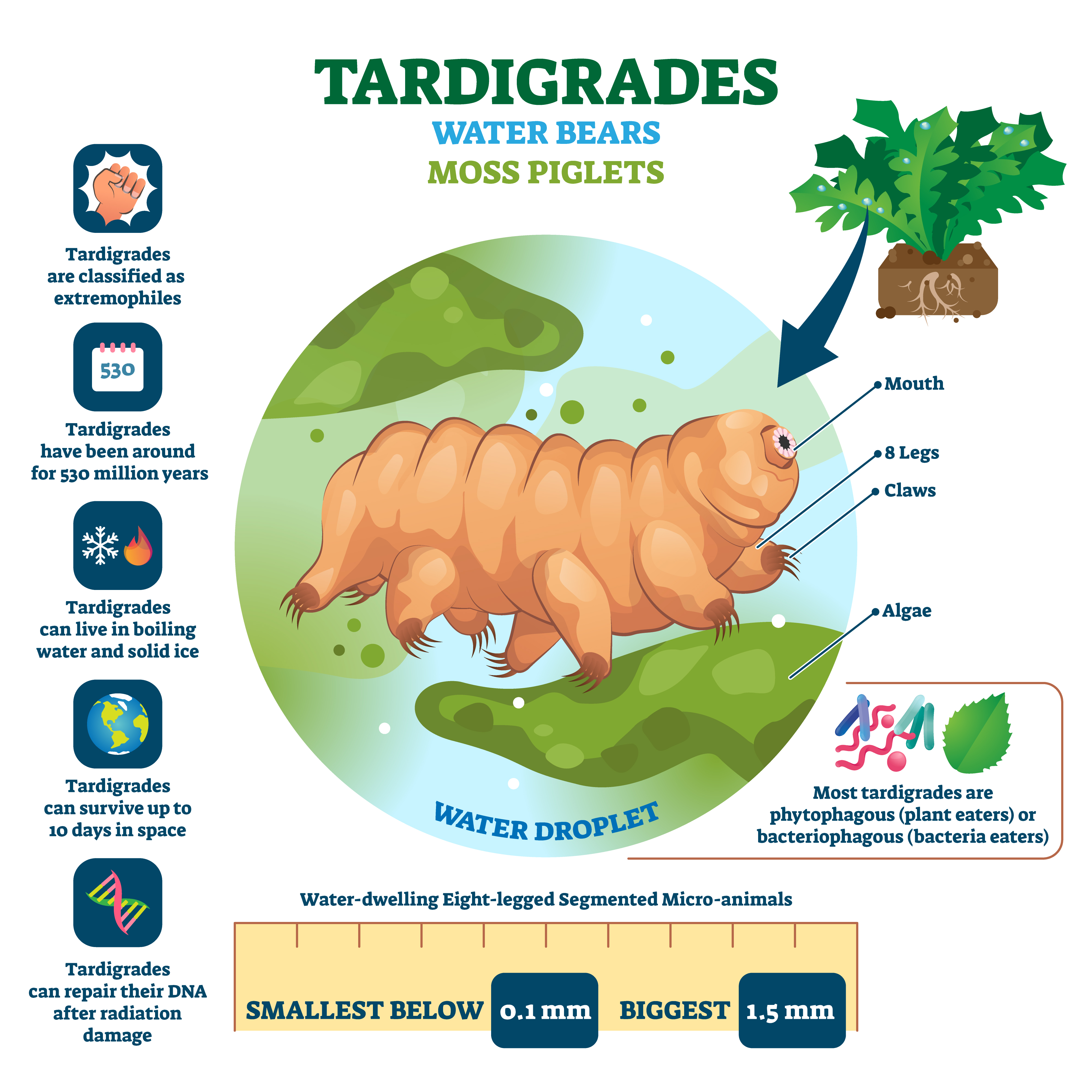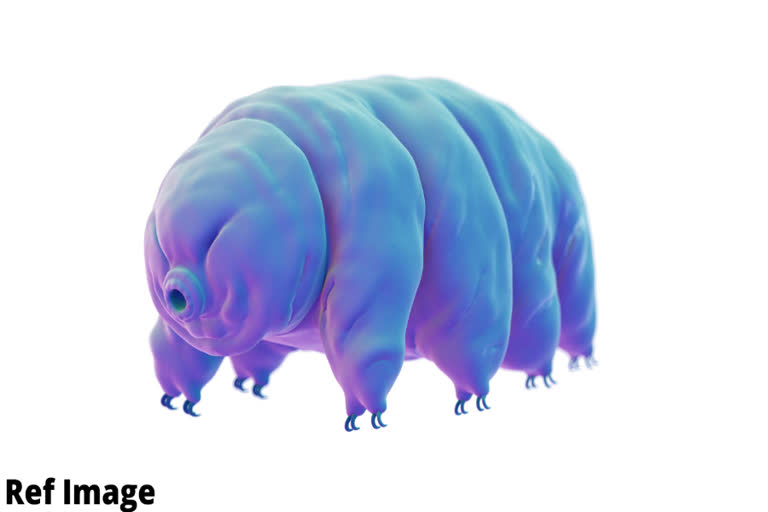New Scientist, UK: Tardigrades, also known as water bears, are about 1 millimeter long. They are famous for being able to withstand conditions that would kill most organisms, such as being completely dried out.

While studying moss, Sandeep Eswarappa at the Indian Institute of Science in Bangalore and his colleagues found what may turn out to be a new species of tardigrade. It seems to like places that are bathed in sunlight. For now, they have named it the Paramacrobiotus BLR strain.
The researchers exposed these animals to a germicidal ultraviolet lamp. A control animal, a worm called Caenorhabditis elegans, died in 5 minutes, but Paramacrobiotus BLR survived for an hour. While wondering how the tardigrades might survive, they left a tube of them near a UV source and noticed the tube started glowing.
Further experiments revealed that the tardigrades contain a fluorescent chemical. "It is absorbing the UV light and emitting harmless visible light in the blue range," says Eswarappa.
The researchers were able to transfer this chemical to another tardigrade, Hypsibius exemplaris, and to C. elegans, both sensitive to ultraviolet. This protected them from UV for 15 minutes
The team hasn't yet identified exactly what the chemical is, but once it is known, Eswarappa hopes to make more of it and explore whether it might be used in sunscreen.
___
(c) 2020 New Scientist Ltd.
Distributed by Tribune Content Agency, LLC
Also Read: Zoo scientists revive cells from 40-year deep freeze to clone endangered horse



